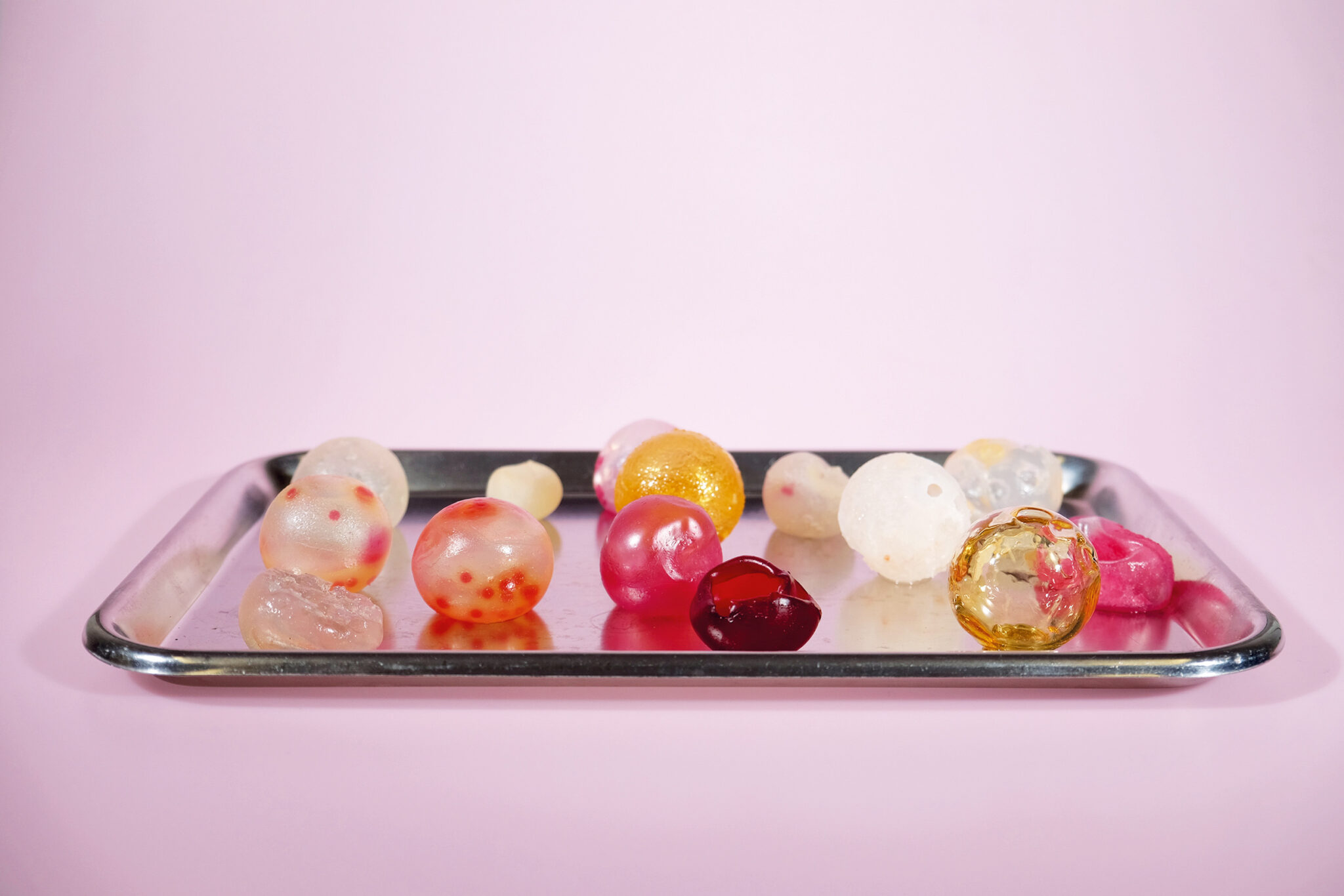Sweet Industrial Kitchen

Chocolate figures and pralines come in many shapes and are often made in a similar way to plastic products. There are many culinary surprises, especially at Christmas time. The task of this assignment was to explore this variety and to develop new, tasty shapes and healthier recipes, in order to expand the production of normally inedible products.
In the first part, we visited the company Global Fliegenschmidt to see the production of plastic products live using rotational moulding. After a following theoretical insight into this manufacturing process, the students experimented with rotational moulding themselves. They all got to know the process in a practical way, looked at mould making and explored the world of rotational moulded chocolate by creating their own designs.
In the second part, we pushed the limits of the process – for more climate health: What happens when we rotate other edible masses? Are there more climate-friendly foods for canapés, desserts and snacks?
Finally, the diverse results of the specialist task were presented in a joint culinary presentation in the canteen.
| supported by: | Prof. Mareike Gast Andi Wagner |
| year: | 2024/25 |
| level: | 1st year BA (short project) |
